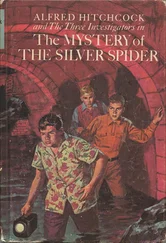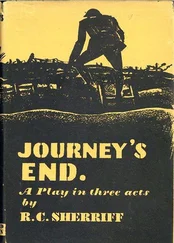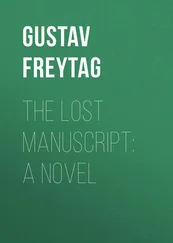Роберт Шеррифф - The Hopkins Manuscript
Здесь есть возможность читать онлайн «Роберт Шеррифф - The Hopkins Manuscript» весь текст электронной книги совершенно бесплатно (целиком полную версию без сокращений). В некоторых случаях можно слушать аудио, скачать через торрент в формате fb2 и присутствует краткое содержание. Год выпуска: 2018, ISBN: 2018, Издательство: Penguin Books, Жанр: sf_postapocalyptic, humor_satire, на английском языке. Описание произведения, (предисловие) а так же отзывы посетителей доступны на портале библиотеки ЛибКат.
- Название:The Hopkins Manuscript
- Автор:
- Издательство:Penguin Books
- Жанр:
- Год:2018
- ISBN:978-0-241-34908-3
- Рейтинг книги:4 / 5. Голосов: 1
-
Избранное:Добавить в избранное
- Отзывы:
-
Ваша оценка:
- 80
- 1
- 2
- 3
- 4
- 5
The Hopkins Manuscript: краткое содержание, описание и аннотация
Предлагаем к чтению аннотацию, описание, краткое содержание или предисловие (зависит от того, что написал сам автор книги «The Hopkins Manuscript»). Если вы не нашли необходимую информацию о книге — напишите в комментариях, мы постараемся отыскать её.
The Hopkins Manuscript — читать онлайн бесплатно полную книгу (весь текст) целиком
Ниже представлен текст книги, разбитый по страницам. Система сохранения места последней прочитанной страницы, позволяет с удобством читать онлайн бесплатно книгу «The Hopkins Manuscript», без необходимости каждый раз заново искать на чём Вы остановились. Поставьте закладку, и сможете в любой момент перейти на страницу, на которой закончили чтение.
Интервал:
Закладка:
‘What’s he doing on the radio?’ I asked. I did not share Pat’s excitement. I did not like the sound of it at all.
‘I don’t know,’ replied Pat. ‘I switched on just as the news was ending – just in time to hear them announce Major Jagger.’
Robin came hurrying in. He seemed unusually disturbed and excited. He lit a cigarette and paced the room in a silence that seemed to last an hour.
It took me quite a while to recognise that voice again: it seemed deeper and more resonant over the radio – possibly because the thin, twitching face was hidden from us. But gradually that overwhelming personality came bursting through. I stood by the mantelpiece – Robin by the window: Pat beside the table, and we listened to the most astonishing speech I had ever heard in my life. We stood because the incredible, fanatical intensity of the speaker held us rigid…
I cannot attempt to record the whole of that amazing flood of words: it lasted, I imagine, for half an hour and left us weak and exhausted as if some giant vampire had sucked us dry of vitality.
The old Government, our sane, hard-working old Government, had fallen. A reactionary party had, that evening, taken power and Jagger was ‘leader’!
He began with a disgusting, shameless attack upon John Rawlings, the fallen Premier. He accused Rawlings and all his Ministers of cowardice: of attempts at compromise with the Leaders of Europe.
‘Rawlings, with his spineless compromise – his ignominious retreats – his futile arguments – has made our country the laughing stock of Europe! He disguised his terror of his opponents under such words as “reason” and “sanity”! To reason with these men is insanity itself! A few more weeks of Rawlings’ “reasoning” and the British Empire would have been wrecked beyond repair!’
We heard him take in a rasping breath that sounded like the ripping of a piece of canvas.
‘One thing alone will regain for Britain the respect of Europe’s Leaders,’ he shouted – ‘a good big dose of their own medicine, which I – Roland Jagger – propose to give them! I shall give them a double dose! – a treble dose! – a dose big enough to keep them on their backs until Britain by her own power, has assured peace in Europe and a fair division of the riches of the moon!
‘I have no intention of claiming the whole moon: no intention of claiming more than a just and rightful share. What I do claim is the right to trample on and suffocate these ridiculous little Leaders and give peace to the honest, decent people of the whole of Europe!
‘Europe today is plunging towards a destruction more hideous than any that was threatened by the moon itself! One hope alone remains to us! One nation must take the lead: one nation must gain such powerful ascendancy that it can call all other nations to heel and enforce them to accept peace. That nation must be Britain! With God’s help I shall remain your Leader until the great salvation is completed!
‘The people of Britain shall be the crusaders! I depend upon you, one and all! Man and woman, young and old, shall dedicate themselves to our great crusade! I am confident that none will hesitate: none will show themselves as cowards! Day by day I shall call upon you: I shall call upon you in the name of peace! – the name of sanity! – the name of Britain!’
The voice was so intense, so vibrantly overpowering, that I almost expected it to cry out: ‘You, Mr Hopkins! – what about you!’
The awful part of the speech was the reason of it! – the wild, raging reason of it! With things in their existing, hideous chaos, one nation must sooner or later take the lead. There were but two alternatives: either leadership must emerge after a long and horrible war: one nation an exhausted victor over a stricken Europe – or it must emerge now, and make a desperate bid to save not only Europe, but the world. Jagger was right. I loathed the man more than ever before: I hated his bombast: his truculence: his colossal conceit, but I knew that all of it was necessary – that the man himself was necessary. The only way to stamp out this pest of ‘Leaders’ in Europe was to produce one ourselves, worse than any of them, and stronger…
After his speech was over we went to bed. I don’t think that anybody, after listening to that speech, could have done anything else but go to bed. I think Jagger must have gone to bed himself.
CHAPTER TWENTY-EIGHT
I have had much time for reflection in these last years of deepening loneliness. Often, in the sleepless hours of night I have reviewed my own conduct during the days when we hovered upon the brink of disaster. I have wondered whether I could have done anything, by word or deed, to have saved my country – or, at least, my home.
Perhaps it sounds conceited for an obscure, retiring man even to consider the possibility of guiding his country away from that abyss; but history tells us of many such men who rose up in the darkest hours to guide the destiny of their fellows. If I had raised my voice in the sacred cause of sanity, could I have done anything? If I had clothed myself as a prophet, taken a staff and gone from village to village preaching the gospel of self-preservation, could I have gained sufficient followers to defeat the submerging madness? Always I come to the same conclusion. If I could not save my own home, I could not have saved the world.
After a night’s rest I was sufficiently recovered from Major Jagger’s speech to think coherently once more. It was useless to deceive myself any longer. Jagger was not bluffing. It was no good pretending that it would ‘all blow over’. Jagger meant business: he had proclaimed his fateful decisions to the world and I knew the man well enough to realise that nothing would divert him from his ruthless purpose.
My own course of action was quickly settled. I had a clear-cut, inflexible conviction of the right and patriotic thing to do. It happened to be a Saturday, and every Saturday morning it was the custom of our small community to meet together in the granary of The Manor House to decide upon the produce that we should take to Market that day.
This was an excellent opportunity to declare my policy, for it saved the disturbing necessity of making an ‘occasion’ of it by calling a special meeting.
‘You have seen this morning’s papers,’ I began. ‘Some of us listened last night to Major Jagger’s speech. I’m afraid we have some very black days ahead of us, and I think we should be unanimous upon the proper understanding of our duty.’
Old Humphrey, who was nearly eighty and very deaf, had probably not seen the papers, nor heard a word of Jagger’s speech, and Jim, although a willing boy, was only sixteen, and slow in the uptake. I scarcely expected either of them to grasp what I was talking about, but by speaking, apparently, for the benefit of our farm hands I was able to let Pat and Robin know my views without restraint.
For Pat and Robin were of an age to understand: reliant enough to form their own opinions. They might have resented any attempt of mine to influence them had I spoken to them privately, and I desperately hoped that they would understand me, and stand by me in all that I had planned.
‘In the next few months,’ I said (with my eyes upon the goggling Jim, and the corners of them upon Robin), ‘we may hear many radio appeals: we may read in our newspapers of what we ought to do to serve our country. Let us do what we know to be right and patriotic! In times of great stress it sometimes happens that those in authority overlook the less spectacular, but no less vital needs of mankind. They may seek to throw all of us into the front line and forget that, without good food, a front line must soon collapse! Our duty in Beadle Valley is clear. We must work with all our strength: redouble our energies and supply the food that leads to victory. If the farmers desert their farms because it seems more heroic to carry a gun, then not only their fellow soldiers, but thousands of women and children will face famine in the winter. Are we all agreed to turn a deaf ear to panicky appeals and do our duty in Beadle Valley?’
Читать дальшеИнтервал:
Закладка:
Похожие книги на «The Hopkins Manuscript»
Представляем Вашему вниманию похожие книги на «The Hopkins Manuscript» списком для выбора. Мы отобрали схожую по названию и смыслу литературу в надежде предоставить читателям больше вариантов отыскать новые, интересные, ещё непрочитанные произведения.
Обсуждение, отзывы о книге «The Hopkins Manuscript» и просто собственные мнения читателей. Оставьте ваши комментарии, напишите, что Вы думаете о произведении, его смысле или главных героях. Укажите что конкретно понравилось, а что нет, и почему Вы так считаете.












